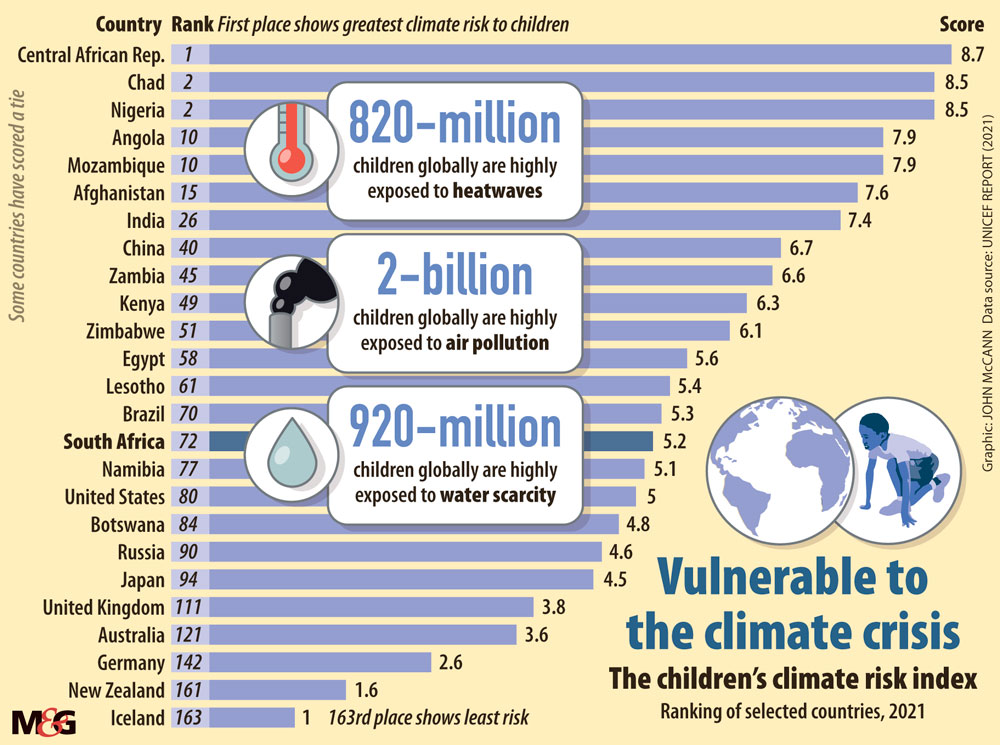Children are more vulnerable than adults for a number of reasons including an increased risk of death (Photo by Richard Baker / In Pictures via Getty Images)
Water will be a significant way people will be affected by the climate crisis and recent studies show that children will be particularly vulnerable.
The International Union for the Conservation of Nature says: “Only 3% of the planet’s water is fresh water and, of this, two-thirds is captured in glaciers and polar ice. In the current climate predictions, safeguarding the water we have in the supplies we need for a global population set to reach 10-billion by 2050 will be a challenging task.”
New data shows that about one billion children — nearly half of the world’s children — live in countries considered extremely high-risk.
UN Water, which coordinates the efforts of United Nations and international organisations working on water and sanitation issues, said that more than a fifth of the world’s basins have recently experienced either rapid increases in their surface water area, indicative of flooding; a growth in reservoirs and newly inundated land; or rapid declines in surface water area, indicating that reservoirs, lakes and wetlands are drying up.
The climate risk index released by the UN Children’s Fund (Unicef) says: “Children are more vulnerable to climate and environmental shocks than adults for a number of reasons, including physical and physiological vulnerability and an increased risk of death.”
According to the report, South Africa’s climate risks to children is rated at 5.2 (medium to high risk) while Zimbabwe’s child risks is rated 6.1 (high risk). Mozambique and Angola are ranked higher in the southern region of Africa at 7.9, indicating an extremely high risk.
Unicef researchers further found that an estimated 330-million children — one in seven children globally — are exposed to at least five major climate and environmental hazards, shocks and stresses. In terms of vulnerability, the index scores South Africa at 4.7 (medium risk) while Mozambique and Zimbabwe rank 8.2 and 6.5 respectively.
 (John McCann/M&G)
(John McCann/M&G)
Unicef says the index helps to measure “the likelihood of climate and environmental shocks or stresses leading to the erosion of development progress, the deepening of deprivation and/or humanitarian situations affecting children or vulnerable households and groups.”
Experts say we should go back to the basics to conserve water, such as showering and using grey water to water plants. About half of water used in cities goes to watering lawns, gardens, golf courses and other landscaped areas, says the NGO, Sustainable Waters.
Eliminating food waste will reduce global water consumption by more than a third, the Stockholm Institute of Water says.
Reducing energy use will help as a lot of water is needed to produce electrical power. And using water-efficient toilets, washing machines and dishwashers can reduce consumption by 20%.
Tunicia Phillips is a climate and economic justice reporting fellow funded by the Open Society Foundation for South Africa